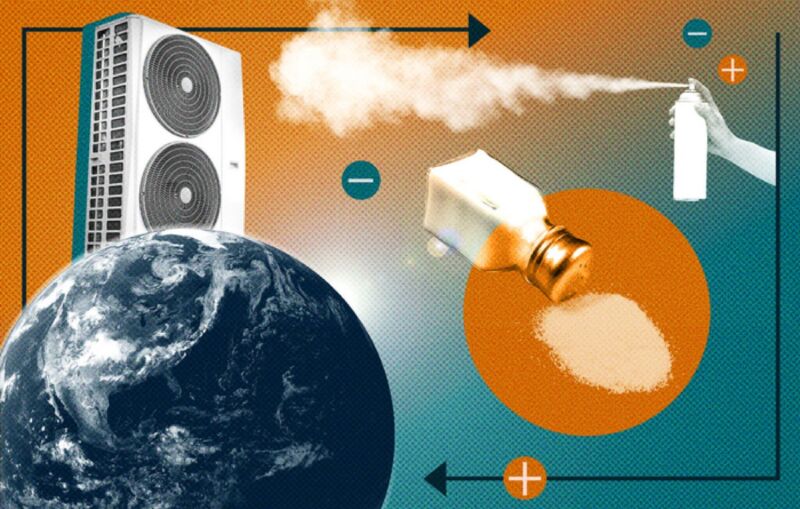This cool new approach to refrigeration could replace harmful chemicals

Enlarge / Berkeley Lab scientists have developed ionocaloric cooling, a new refrigeration cycle they hope could help phase out refrigerants that contribute to global warming. (credit: Jenny Nuss/Berkeley Lab)
Scientists at Lawrence Berkeley National Laboratory have developed a novel potential means of alternative refrigeration: ionocaloric cooling. The method involves electrically charged atoms or molecules (ions) changing the melting point of a solid material, much like adding salt to roads before a winter storm changes how ice will form. Their proof-of-principle experiment used salt made with iodine and sodium along with an organic solvent to achieve energy-efficient cooling, according to a recent paper published in the journal Science.
The landscape of refrigerants is an unsolved problem: No one has successfully developed an alternative solution that makes stuff cold, works efficiently, is safe, and doesn't hurt the environment," said co-author Drew Lilley. We think the ionocaloric cycle has the potential to meet all those goals if realized appropriately."
There's a long history of scientists looking for better alternatives for refrigeration, including a refrigerator designed by physicists Albert Einstein and Leo Szilard. The impetus for the two men's collaboration occurred in 1926, when newspapers reported the tragic death of an entire family in Berlin due to toxic gas fumes that leaked throughout the house while they slept-the result of a broken refrigerator seal. Such leaks were occurring with alarming frequency as more people replaced traditional ice boxes with modern mechanical refrigerators, which relied on poisonous gases like methyl chloride, ammonia, and sulfur dioxide as refrigerants. Einstein was deeply affected by the tragedy and told Szilard that there must be a better design.